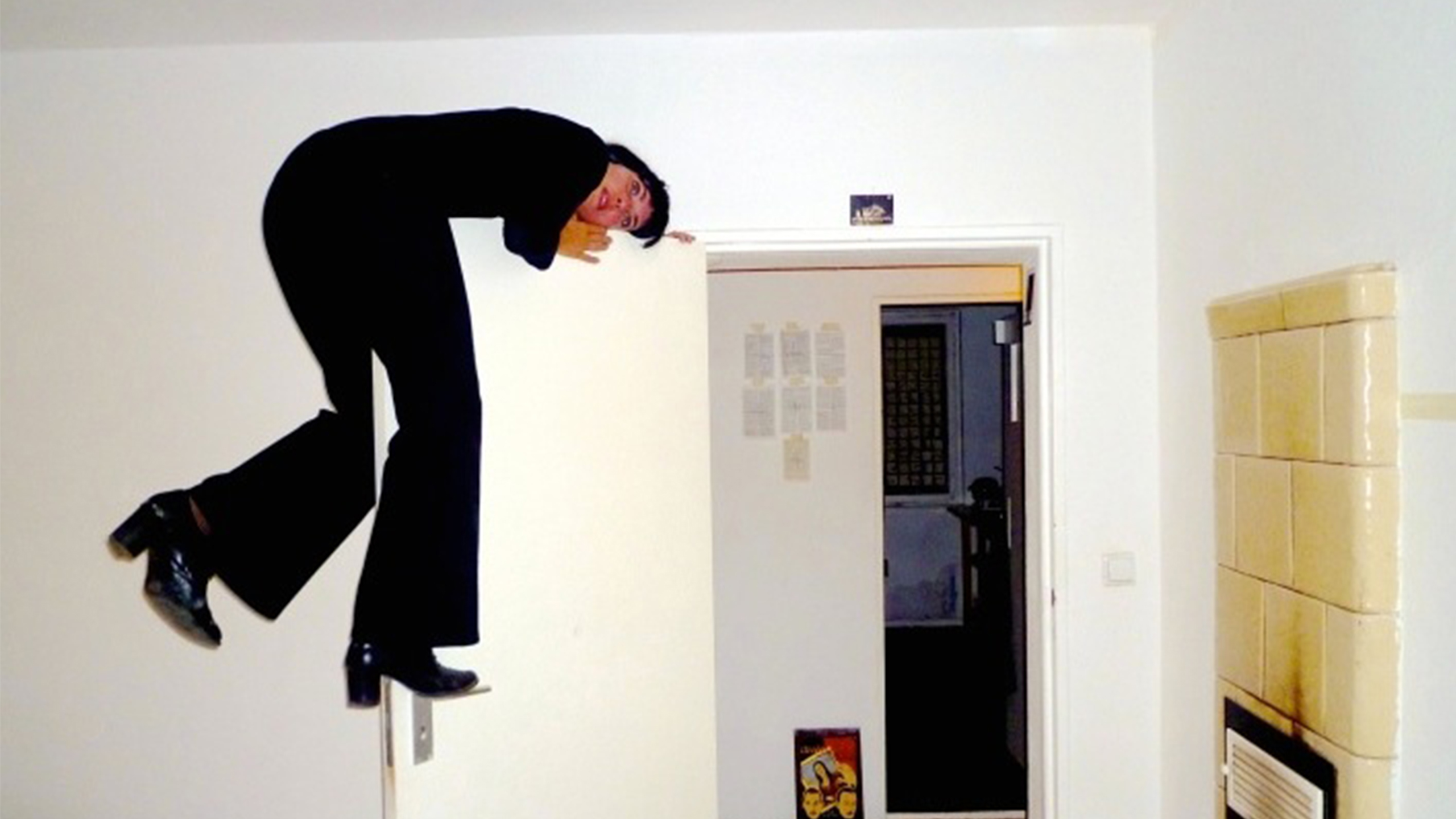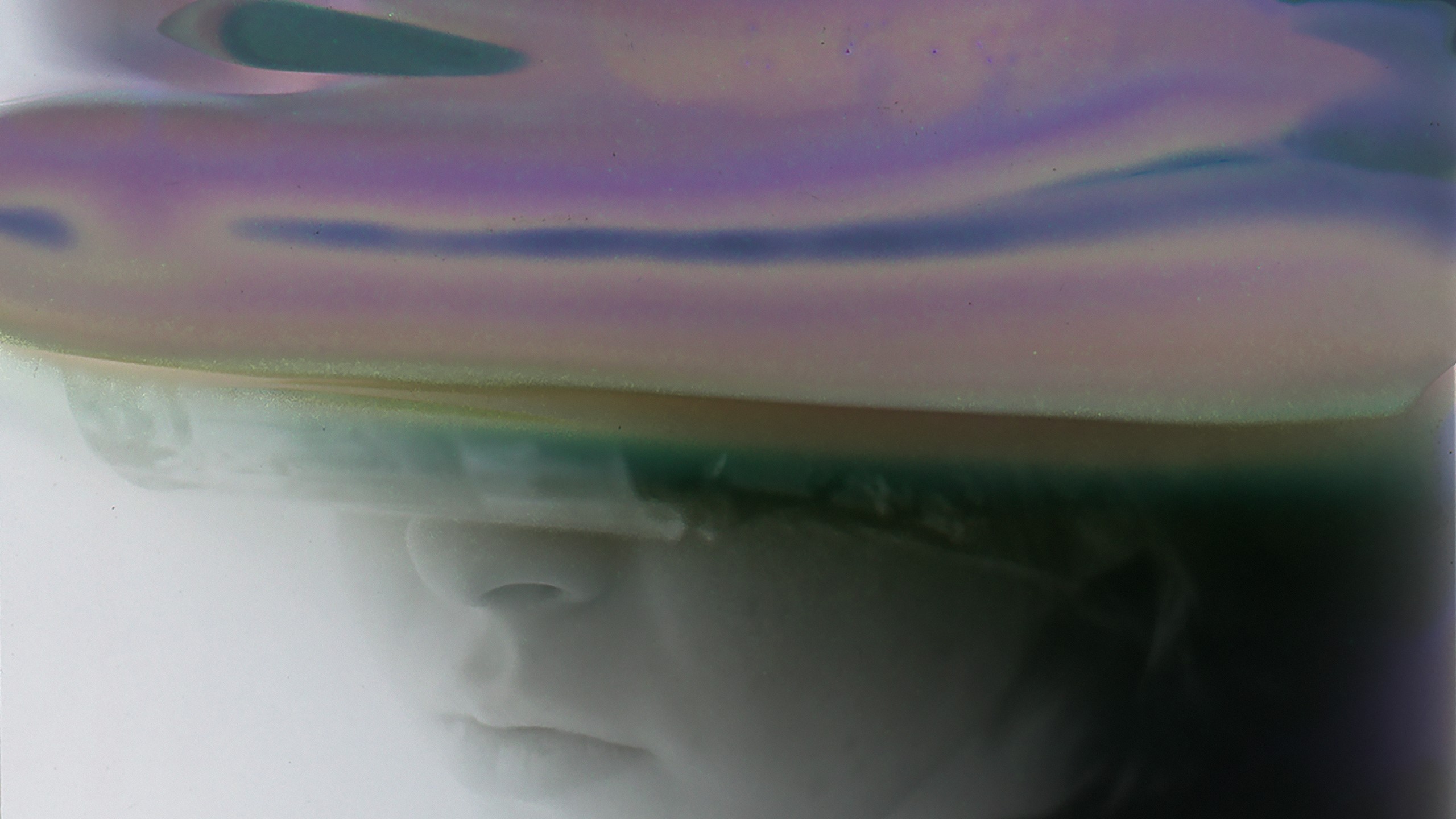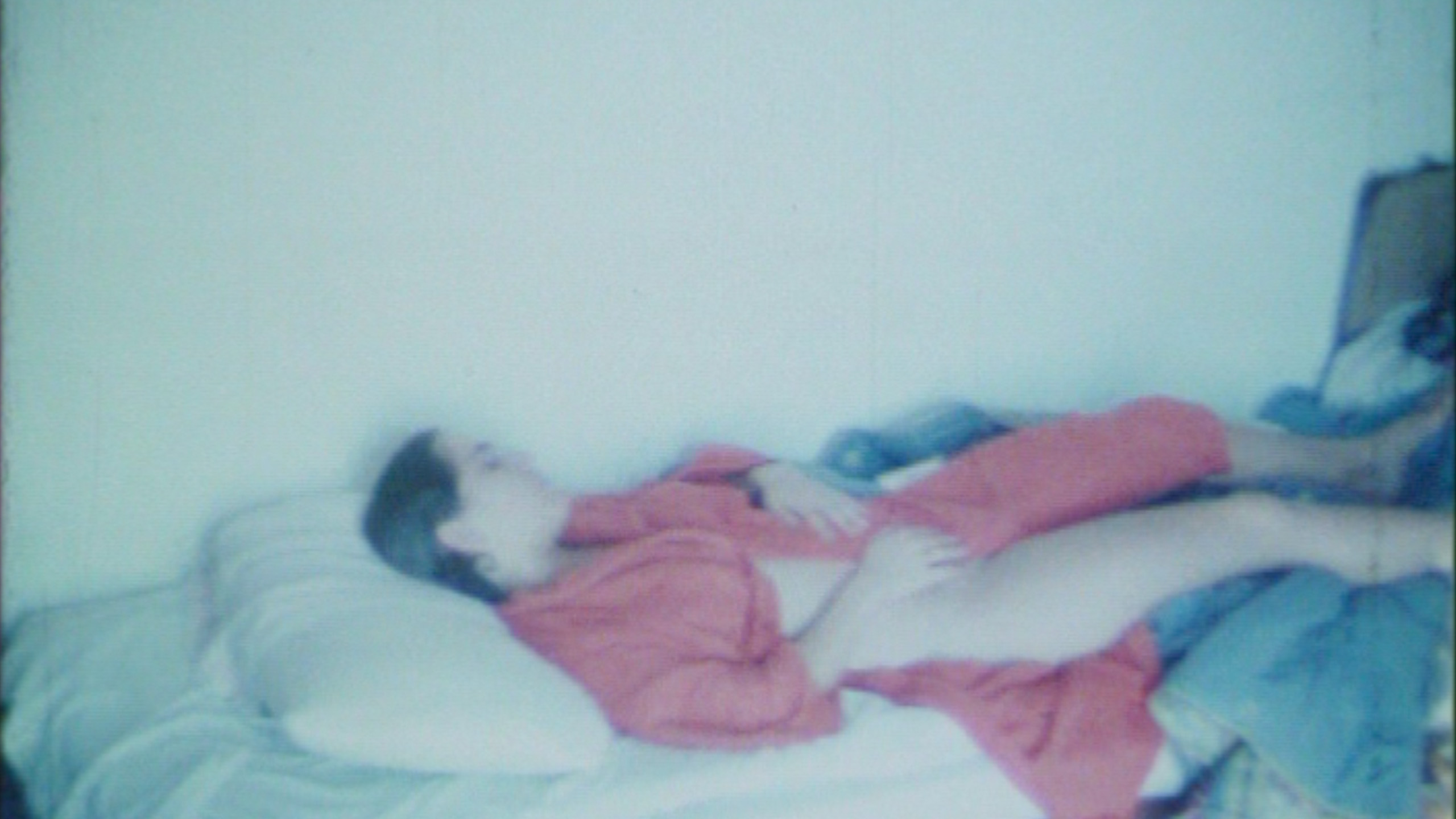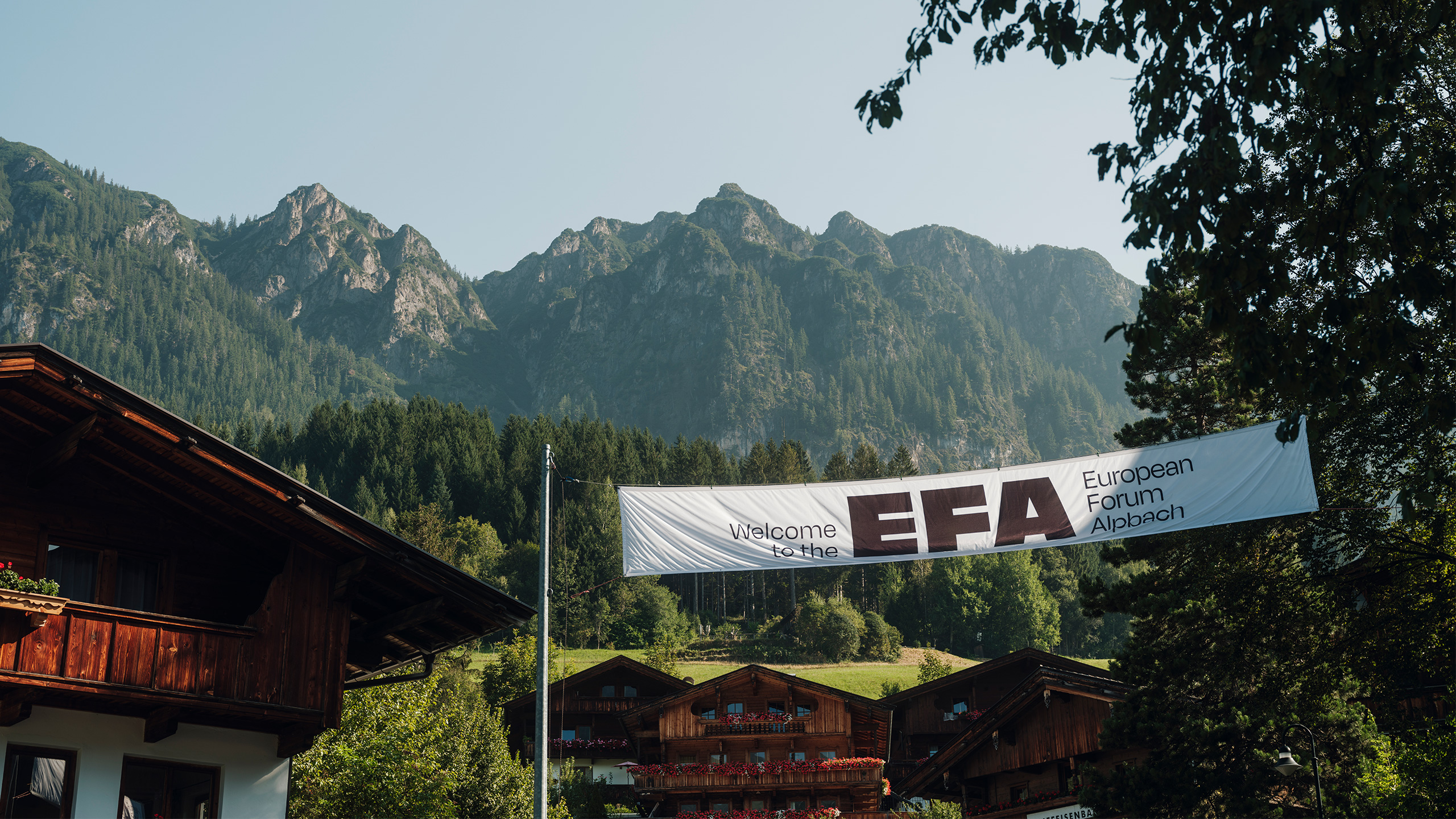Event
14 December – 12 January 2018
Reading Time: 6'
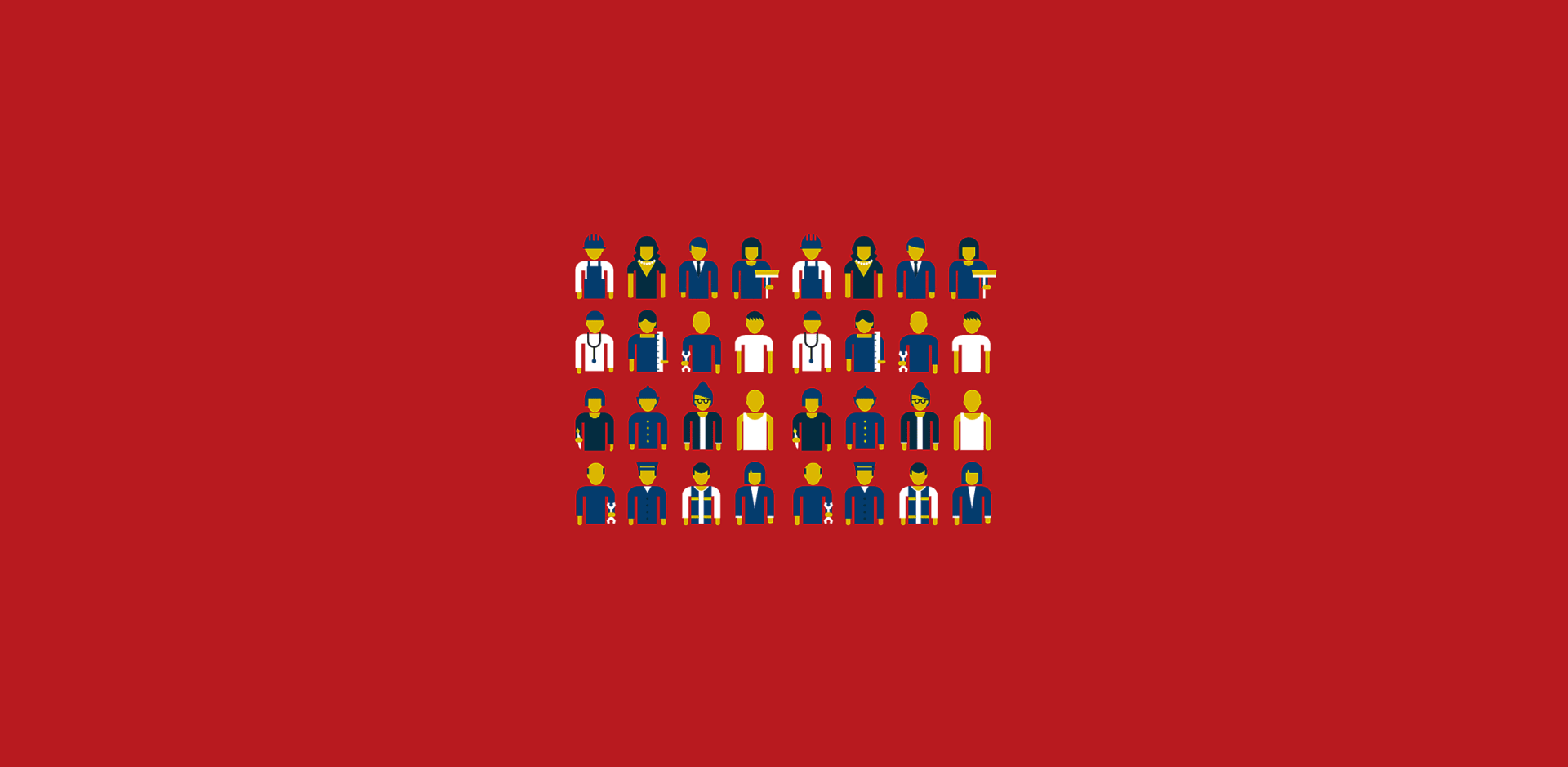
EUROPOLY #4
14 December – 12 January 2018
Volkskundemuseum Vienna
A fourth multidisciplinary event in the framework of the project EUROPOLY takes place in Vienna, realized in collaboration with four independent organisations –Krokodil (Serbia), Bijeli Val (Croatia), Crvena (Bosnia and Herzegovina) and BLOCKFREI (Austria). The intention of the project is to research and map the intense social, cultural and artistic influence which this long-term wave of migrations made on the West Balkan countries, as well as the countries that mostly represented final migrant destination.
An exhibition, series of regional conferences and film screenings are being held held during 2017 in four cities: Belgrade, Zagreb, Sarajevo, Vienna.
The framework and a starting point of EUROPOLY is the art project EUROPOLY – The European Union Identity Trading Game by the artist Dejan Kaludjerović.
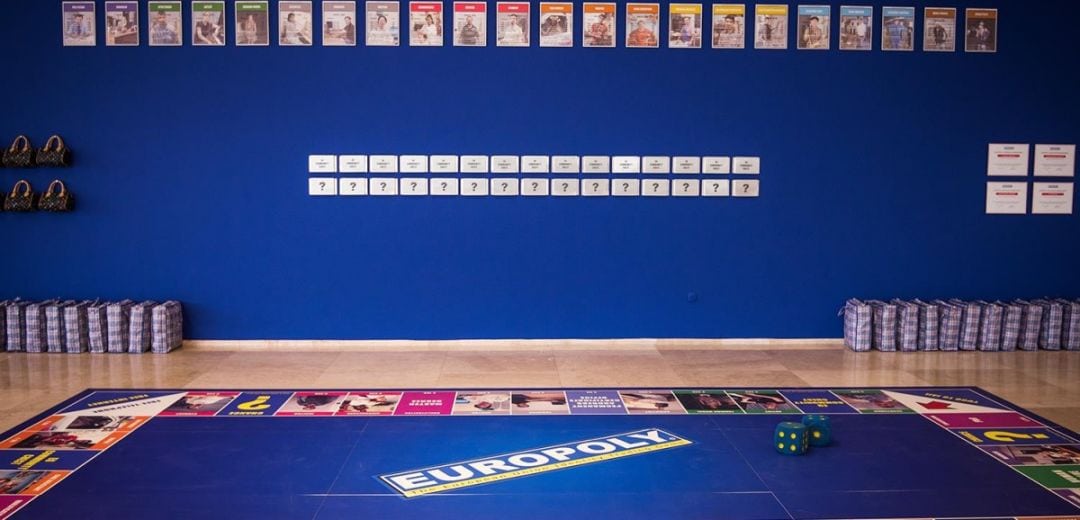
Exhibition
Exhibition opening:
14 December 2017, 7 pm
EUROPOLY – The European Union Identity Trading Game
On view: 15 December 2017 ‒ 12 January 2018
Art project EUROPOLY – The European Union Identity Trading Game is created in the form of a social game inspired by Monopoly. It questions the position of the immigrants in EU, general idea behind the EU, as well as the gap between ideals and practice. Citizens of the non-EU countries, who are working in the EU countries, have been photographed and with their professions are featured in the installation. Luck, to a great extent, determines the possible rise or fall of the players who wish to become part of the EU and acquire new European identity. The European Union defines European identity as something that is provided only within the Union and only to European Union citizens, although Europe does not end at the borders of the Union. However, the EU does have the power to define identity, the power to set up the rules of a game others have to join. The consumer society of the European Union has created a rule, that ’everything is for sale’, including even notions of identity.
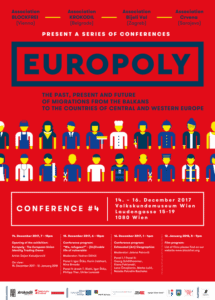
Conference Programme
Friday, 15 December 2017, 6 pm
»We Refugees« – this is how Hannah Arendt titled her small piece published in 1943 in The Menorah Journal. Arendt’s »We refugees« goes deep into the tissue of our time: Our societies, the face of today’s Europe, our lives, are changing rapidly. If the very introspective act of imagining oneself as a refugee is made impossible, furiously rejected as »Gutmensch«-utopia and seen as dangerous for »our societies«, what are the consequences for solidarity within our societies? The sudden move from »Willkommenskultur« in Germany and Austria in 2015 to »politics of fear and walls« of today stands for a structural change of preconditions for livable life. Judy Butler’s term »livable life« points at the life that can be lived, a normal life that has to go beyond the minimal requirements for a mere survival. The boundaries of livable life for vulnerable parts of our populations today are marked by nationalism, xenophobia, exclusion and segregation. Particularly refugees and migrants have become the new »others«, the embodiments of the fear from every kind of insecurity in the future, our fears. (Zygmunt Bauman) Our imagined »vulnerability« is played against the second-class vulnerability of the other that we fear. This is the new constellation haunting the vision of open and democratic Europe. The discussion in two panels of the first day will dig deep into this new constellation.
The first panel will trace the »We refugees« claim throughout the history, look back to learn about the (possible) future. Do we need to reconsider and re-think the usual notions about Balkanese migrations to Austria? Have the vulnerabilities of the past been transformed into new modes of (multiple) belongings today, of »livable life«? Questions arising from today’s perspective will be the permanent link between the first and the second panel: What happens with spaces for freedom, and ultimately for livable life of all under the new constellations of »fear and walls«? What are the consequences of the politics of fear? And finally, is not the vulnerability of today’s European vulnerable – of refugees, migrants, and dispossessed – our own vulnerability? Exploring the horizon of Europe of »livable life« will be the ultimate utopian goal of the first day discussions.
»We, refugees?« – (Un)livable life of vulnerable
Introduction and moderation: Vedran Džihić (Vienna) – politicologist, researcher
6 pm – Part I: Looking back to see the future: Austria and Western Balkans tied by history, and culture and migration? Exploring old and new modes of belonging
Participants:
Igor Štiks (Edinburgh/ Belgrade) – philosopher, writer
Karin Liebhart (Vienna) – politicologist
Nina Brnada (Vienna) – journalist
8 pm – Part II: EUROPOLY – GLOBOPOLY: Refugees and migration in the European focus – Constellations of (non)belonging and fear
Participants:
Arash T. Riahi (Vienna) – filmmaker
Igor Štiks (Edinburgh/ Belgrade) – philosopher, writer
Philipp Ther (Vienna) – historian
Ulrike Lunacek (Vienna) – politician, MEP
Saturday, 16 December 2017, 1 am
Exhausted (Art) Geographies – After many theoretical, practical and political attempts to define geopoliticality of the contemporary art, especially after the fall of communism in Eastern Europe, we faced with an impossibility to define the politics of geographical location outside the global map of the neoliberal distribution of power. Using different means of diversifications, the old one such as: colonial, capitalist and patriarchal mechanisms of social and geographical (re)production and the new one such as: technological, scientific and (techno)cultural methods of social and territorial identification our global world became the geopolitical location where the majority of people doesn’t belong. Inhuman chains of migrations back to back with catastrophic climate changes are ultimate geopolitical exposures of new social class structure within the neoliberal globality in the age of the permanent war. Many artistic practices, theories, exhibitions and critics are a political display of such exhausted geographies or by other words, geopolitical zones of discomfort which refuse to be mobilized for territorial, national, ethnic, religious, economic or other geographies which create the politics of global domination and (post)human exploitation. Starting from those attempts to refuse and to resist to the geopolitics of the present, as well of from the impossibility to step out of perpetuating geopolitical past, those two panels will discuss geographies in conflicts i.e. exhausted geographies and its material limits enacted by political, economic, climatic and epistemic violence of today’s global map shaped by neoliberal distribution of power.
Exhausted (Art) Geographies
Introduction and moderation: Jelena Petrović (Belgrade/Vienna) – art researcher and curator
1 am – Part I: Geopolitical art-zones and its discontents (Discussion on art economy and its geopoliticality)
Participants:
Lana Čmajčanin (Sarajevo/Vienna) – artist
Iliana Fokianaki (Athens/Rotterdam) – writer and curator
Marko Lulić (Vienna) – artist
Nataša Petrešin-Bachelez (Ljubljana/Paris) – curator and writer
Georg Schöllhammer (Vienna) – editor, author, and curator
3 pm – Part II: Future Geographies (Discussion on possible futures: an art world beyond the neoliberal geography)
Participants:
Georg Schöllhammer (Vienna) – editor, author, and curator
Iliana Fokianaki (Athens/Rotterdam) – writer and curator
Lana Čmajčanin (Sarajevo/Vienna) – artist
Marko Lulić (Vienna) – artist
Nataša Petrešin-Bachelez (Ljubljana/Paris) – curator and writer
The project is supported by Allianz Kulturstiftung, ERSTE Foundation, Federal Chancellery of Austria, The City of Vienna, Austrian Cultural Forum in Serbia, Ministry of Culture of the Republic of Croatia, The City of Zagreb, Eurocomm-PR GmbH.
Local partner is the Volkskundemuseum Vienna.
